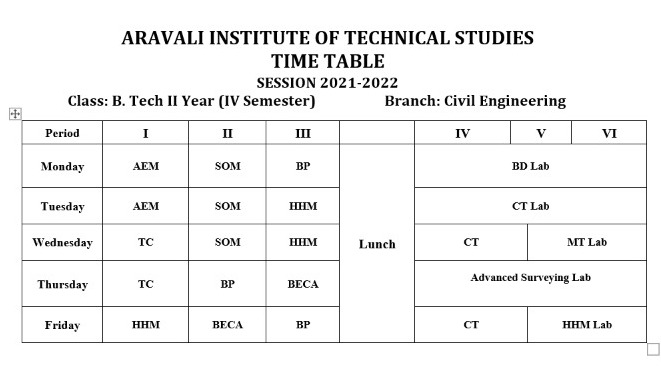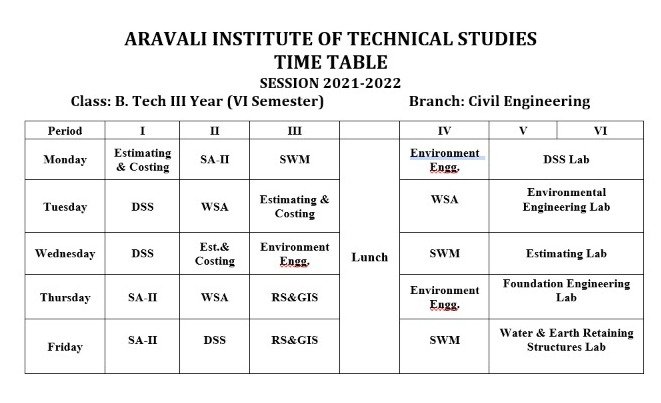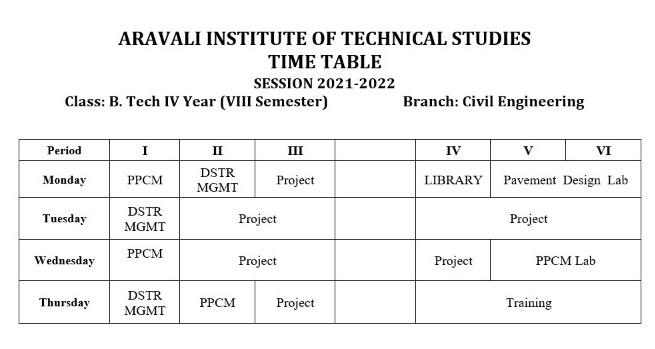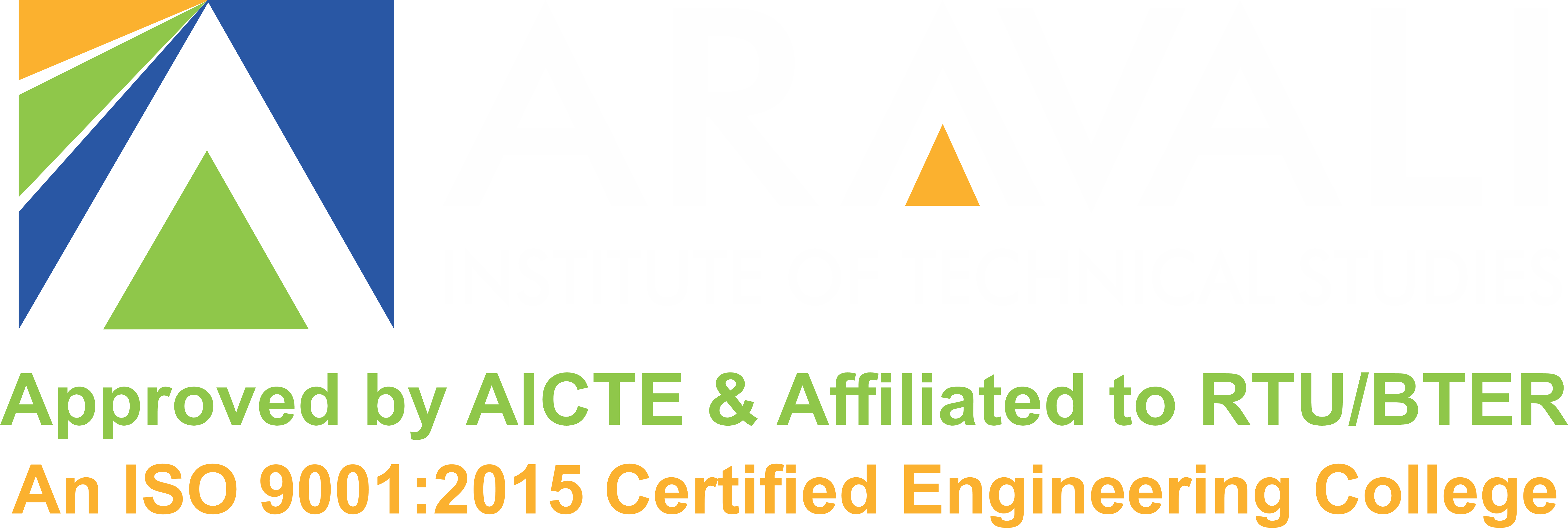Civil Department
(B.Tech. / M.tech.)
- About Department
- Faculty
- Event
- Achievement
- Time Table
- Laboratries
- Course File
- Placements
- Publication
About Civil Engineering
This is one of the oldest branches of engineering and also referred as Mother of all Engineering Branch. Civil engineering department was introduced in 2012. These are professional practice of designing and developing infrastructure projects. Civil engineers are concerned with designing, building and maintaining man-made products and constructions. This can include Highway, bridges, canals, dams, refinery pipelines, reservoir, airport, tunnels, buildings, and more at both small/Local scales to huge-scaled projects. Civil engineers have a vital role in building the infrastructure for communities as well as developing new real estate and maintaining existing residential, commercial, or government buildings. They ensure that every road, bridge, airport, office building, water supply and sewage plant, and mass transit system is well-planned and executed. Management skills, teamwork and communication skills are particularly important because of the large-scale nature of much of the work that they do. Civil Engineering professionals have wider career opportunities and in the developing world the demand of qualified civil engineers is increasing.
Vision
To establish a center of learning for providing a quality based engineering education to the students from the urban and rural area and services to the professional and the community; and to produce innovative civil engineers.
Mission
- To serve the civil aspirants from all over the country by providing a broad and high quality education for a successful professional career.
- To promote quality education, research and consultancy for industrial and societal needs.
- To promote quality eduaTo conduct strong basic and applied research.cation, research and consultancy for industrial and societal needs.
Programme Outcomes (POs):
A student will develop:
PO1-Engineering knowledge: Apply the knowledge of mathematics, science, engineering fundamentals, and an engineering specialization to the solution of complex engineering problems.
PO 2- Problem analysis: Identify, formulate, review research literature, and analyze complex engineering problems reaching substantiated conclusions using first principles of mathematics, natural sciences, and engineering sciences.
PO3-Design/development of solutions: Design solutions for complex engineering problems and design system components or processes that meet the specified needs with appropriate consideration for the public health and safety, and the cultural, societal, and environmental considerations.
PO4-Conduct investigations of complex problems: Use research-based knowledge and research methods including design of experiments, analysis and interpretation of data, and synthesis of the information to provide valid conclusions.
PO5-Modern tool usage: Create, select, and apply appropriate techniques, resources, and modern engineering and IT tools including prediction and modeling to complex engineering activities with an understanding of the limitations.
PO6-The engineer and society: Apply reasoning informed by the contextual knowledge to assess societal, health, safety, legal and cultural issues and the consequent responsibilities relevant to the professional engineering practice.
PO7- Environment and sustainability: Understand the impact of the professional engineering solutions in societal and environmental contexts, and demonstrate the knowledge of, and need for sustainable development.
PO8- Ethics: Apply ethical principles and commit to professional ethics and responsibilities and norms of the engineering practice.
PO9- Individual and team work: Function effectively as an individual, and as a member or leader in diverse teams, and in multidisciplinary settings.
PO10- Communication: Communicate effectively on complex engineering activities with the engineering community and with society at large, such as, being able to comprehend and write effective reports and design documentation, make effective presentations, and give and receive clear instructions.
PO11- Project management and finance: Demonstrate knowledge and understanding of the engineering and management principles and apply these to one’s own work, as a member and leader in a team, to manage projects and in multidisciplinary environments.
PO12- Life-long learning: Recognize the need for, and have the preparation and ability to engage in independent and life-long learning in the broadest context of technological change.
Program Specific Outcomes (PSOs):
PSO1: Graduates will be able to apply technical skills and modern engineering tools for civil engineering day to day practice.
PSO2: Graduates will be able to participate in critical thinking and problem solving of civil engineering field that requires analytical and design requirements.
PSO3: Graduates will be able to pursue of lifelong learning and professional development to face the challenging and emerging needs of our society.
Program Educational Outcome (PEOs):
PEO1: To ensure that graduates will have a mastery of fundamental knowledge, problem solving skills, engineering experimental abilities, and design capabilities necessary for entering civil engineering career and/or graduate school.
PEO2: To incorporate verbal and written communication skills necessary for successful professional practice.
PEO3: Demonstrate knowledge of management principles and engineering techniques for effective project management.
PEO4: To prepare graduates to deal with ethical and professional issues, taking into account the broader societal implications of civil engineering.
Message from HOD
On behalf of all our faculty, staff and students, I would like to welcome you to the Civil Engineering Department of Aravali Institute Of Technical Studies, Udaipur.
Civil engineers are always at work to build the safe and stable habitat for the mankind. As a Head of the department, I am extremely proud of our role in providing high quality education and hands-on experience to our students.
Right from its inception in 2012, the Civil Engineering Department has earned tremendous reputation for qualitative teaching-learning process, meaningful teacher-student interactions, state-of-the-art laboratories and well qualified faculty; positively contributing to the community through teaching, research and consultancy activities.
Students enjoy the regular industrial visits based on their curriculum and scope of the study. Our department is constantly working towards all-round skill development of our students by organizing guest lectures, seminars, workshops, conferences and career service events facilitated by national and international experts.
With a well-planned mission and untiring efforts of our highly committed faculty, staff and students, the department is striving hard to achieve its vision of becoming a center of excellence in the field of technical education and research.



Laboratories
Surveying Lab
Surveying is used to accomplish all civil engineering works or projects successfully. Surveying plays a vital role in professional practice of any civil engineer and architects. Surveying includes planning, designing and execution of any kind of construction work. The surveying lab provides the basic background to the students regarding the techniques of civil engineering. The apparatuses and instruments available in laboratory are Digital Theodolite, Theodolite, Auto Level, Dumpy Levels, Compass, Plane Tables, etc. surveying laboratory plays an important role in development of skills of civil engineers. Hence, the students are introduced to a course which performs the field exercises on their own.
Geology Lab
Geology involves the study of earth and classification of rocks & minerals. The hand specimen available in laboratory provides knowledge of geological and topographical conditions of the earth. The laboratory has a collection of various rocks, minerals, geological charts, charts of folds & faults, charts & maps of contour showing earth layers, and many more.
Geotechnical Engineering Lab
A typical geotechnical engineering laboratory helps in identifying the engineering behavior of soil. Geotechnical engineering involves the study of principles of soil mechanics and rock mechanics. Geotechnical engineering laboratory provides the knowledge about physical and chemical properties of soil and conducts experimental analyses of soil properties. It analyses and experimentally calculates its various aspects like strength, moisture content, plasticity limit, liquid limits and shrinkage limit.The laboratory is equipped to perform all the necessary basic characterization of soils.
Structural Engineering Lab
Structural engineering laboratory plays an important role for civil engineering students. These laboratories conduct practicals to analyze and design the structure. Mainly internal forces, stresses and deformation of structures under different load conditions can be determined in structural engineering. Structural engineering lab helps in understanding the behavior of physical structures like beams, roof, truss, arches of a structure practically. Different structural apparatus like Two-Hinge Arch, Three- Hinge Arch, Simply Supported Beam, Curved Member of different shape, Pin Joint Truss are available in the laboratory.
Concrete Technology Lab
Concrete Technology lab conducts the tests and practical on cement and concrete. The laboratory provides study of basic knowledge of concrete. In construction, testing of concrete and concrete aggregates are important elements in obtaining quality work. The laboratory permits the students to test and assess the various fresh and hardened concrete properties that may affect the performance of concrete members.The lab has wide range of various equipments like as Compression testing machine, Slump cone apparatus, Vicat’s apparatus, Sieve Shaker, Water bath with electrical heating arrangement, Set of sieves (of different microns) for fine and coarse aggregates, Weighing balance, cement cube moulds, Tamping rod, Gauging trowel, and many more.
Various Companies Where our student Placed in Government / Private Companies :
1. Governement of Rajasthan – Water Respurces Department
2. Government of Gujarat – Public Health & Engineering Department
3. Indian Railways
4. G R Infra Project Pvt. Ltd
5. Sadbhav Engineering Ltd.
6. L & T Construction
7. Nepal Oil Corporation Limited
8. Hindustan Construction
9. Riddhi Siddhi Group
10. Shree Cement
11. J.K. Cement
12. Vaaidehi Developers
13. ICICI Bank
Various Other Countries/University where our student running Higher Studies:
1. New York Institute of Technology, New York
2. De – Montfort University, Leicester, UK
3. Deakin University, Australia

